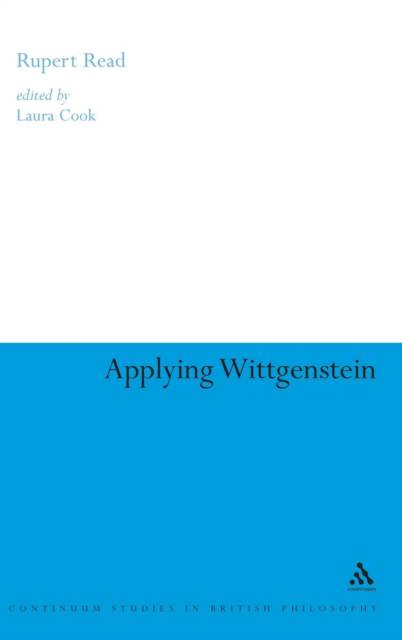
- Afhalen na 1 uur in een winkel met voorraad
- Gratis thuislevering in België vanaf € 30
- Ruim aanbod met 7 miljoen producten
- Afhalen na 1 uur in een winkel met voorraad
- Gratis thuislevering in België vanaf € 30
- Ruim aanbod met 7 miljoen producten
Zoeken
€ 373,45
+ 746 punten
Omschrijving
A key development in Wittgenstein Studies over recent years has been the advancement of a resolutely therapeutic reading of the Tractatus. Rupert Read offers the first extended application of this reading of Wittgenstein, encompassing Wittgenstein's later work too, to examine the implications of Wittgenstein's work as a whole upon the domains especially of literature, psychopathology, and time. Read begins by applying Wittgenstein's remarks on meaning to language, examining the consequences our conception of philosophy has for the ways in which we talk about meaning. He goes on to engage with literary texts as Wittgensteinian, where 'Wittgensteinian' does not mean expressive of a Wittgenstein philosophy, but involves the literature in question remaining enigmatic, and doing philosophical work of its own. He considers Faulkner's work as productive too of a broadly Wittgensteinian philosophy of psychopathology. Read then turns to philosophical accounts of time, finding a link between the division of time into discrete moments and solipsism of the present moment as depicted in philosophy on the one hand and psychopathological states on the other.
This important book positions itself at the forefront of a revolutionary movement in Wittgenstein studies and philosophy in general and offers a new and dynamic way of using Wittgenstein's works.
This important book positions itself at the forefront of a revolutionary movement in Wittgenstein studies and philosophy in general and offers a new and dynamic way of using Wittgenstein's works.
Specificaties
Betrokkenen
- Auteur(s):
- Uitgeverij:
Inhoud
- Aantal bladzijden:
- 208
- Taal:
- Engels
- Reeks:
Eigenschappen
- Productcode (EAN):
- 9780826494504
- Verschijningsdatum:
- 29/01/2008
- Uitvoering:
- Hardcover
- Formaat:
- Genaaid
- Afmetingen:
- 161 mm x 236 mm
- Gewicht:
- 444 g

Alleen bij Standaard Boekhandel
+ 746 punten op je klantenkaart van Standaard Boekhandel
Beoordelingen
We publiceren alleen reviews die voldoen aan de voorwaarden voor reviews. Bekijk onze voorwaarden voor reviews.








